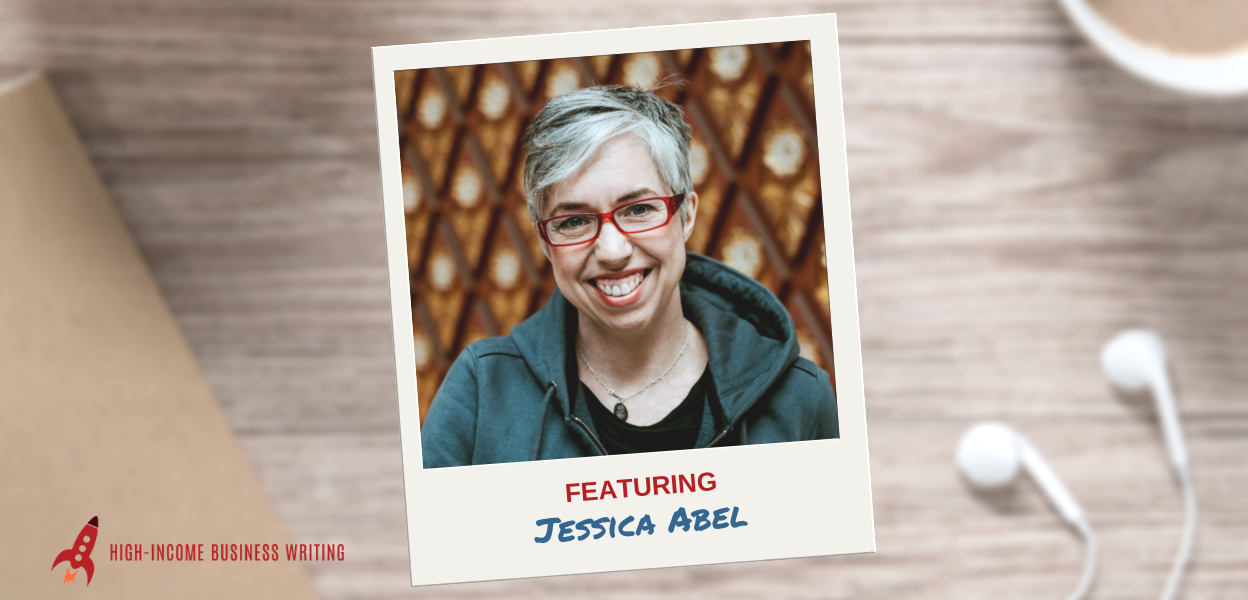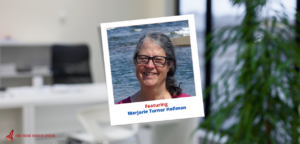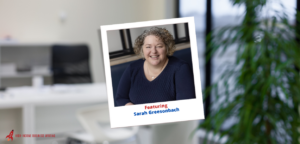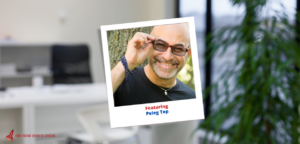Maybe you thought that when you became self-employed, you’d finally have time to work on that big, creative side project.
Then you went solo … and five years went by without any headway.
Your intentions are noble, but you feel like you’re drowning every week. There’s just no time!
How can you create the freedom you need to work on these non-urgent endeavors?
And how can you push through procrastination and self-doubt?
In this podcast episode, Jessica Abel addresses these challenges head on — and offers great insights into how to deal with them.
Jessica is a coach and author of several books, including Growing Gills: How to Find Creative Focus When You’re Drowning in Your Daily Life and Out on the Wire: The Storytelling Secrets of the New Masters of Radio, which describes how Ira Glass and 35 other audio producers use stories to keep us listening.
She also has more than 20 years of classroom and online teaching experience. She’s taught at the School of Visual Arts in the MFA in Comics program at the California College of Arts, and at the School of the Art Institute of Chicago, among others.
The notes that follow are a very basic, unedited summary of the show. There’s a lot more detail in the audio version. You can listen to the show using the audio player below. Or you can subscribe in iTunes to get this show delivered straight to the Podcasts app on your smart phone, tablet or iPod.


High-Income Business Writing with Ed Gandia
#209: Jessica Abel on How to Find Creative Focus When You’re Drowning in Your Daily Life
Tell us about yourself
Jessica Abel is program leader for the Creative Focus Workshop. It’s an online course that’s designed to help creative people to figure out why their most important projects aren’t getting done — and what to do about it.
Jessica also has a membership group where members help each other negotiate the complexities of a creative life.
A lot of us have big, ambitious creative ideas for our businesses (and our lives) but never actually take action on them. Why is that?
Creative professionals have clients. And client work always feels more pressing than big-picture things you want to work on. You’re the only one who cares about those things until you bring them into existence.
The level of self-belief and trust that’s required to persevere is incredibly demanding. You have to be willing to say no to all kinds of demands from your clients, family and friends.
It’s so much easier to let these big-picture items slide!
In addition, we experience fuzzy thinking about our time. Can you really complete all 25 items on your to-do list today? No. So instead you’ll work on the low hanging fruit and not tackle the big stuff, like writing a novel.
You talk about the concept of “idea debt” in your book. Can you explain what it is?
The term comes from Kazu Kibuishi, the author of Amulet.
He explains the concept using snowboarding as a metaphor. When you go down runs, you’ll see young guys gathered around, looking at the jumps — and getting colder and more frightened. It’s better to either just go for the jump or skip it.
Kibuishi is talking about perfectionism. If you think too much about the end result, it prevents you from doing the work.
If you focus too much on the end result, it prevents you from doing the work.
With idea debt, you have an idea in your mind and you start thinking about how it’s going to do all these wonderful things for you. The bar you’re setting gets higher and higher and you feel less and less capable of reaching it.
Another type of idea debt is when you carry around a long-held idea that’s not really relevant to who you are today. But you’ve put so much time and energy into it, you feel you need to finish it.
But sunk costs are a fallacy. Putting more time and effort into an idea that’s no longer relevant to you just costs you more time and effort.
Putting more time and effort into an idea that’s no longer relevant to you just costs you more time and effort.
You need to examine your idea debts carefully and ask whether it still serves you.
My tribe struggles with two competing forces: idea surplus and perfectionism. We want to do all these things, but they have to be perfect. What can we do about that?
Perfectionism is everywhere. And it’s understandable. We care about things and we know what’s good.
We look at our own skills and think we’re not capable. And so we stop and take on a different project.
The only way out is through. You have to finish projects and live with the consequences in order to take the next step.
The only way out is through. You have to finish projects and live with the consequences in order to take the next step.
One trick is to not look at the big picture. Don’t envision the end result. Keep your focus on the few feet in front of you.
The only way to move on is to put out work that doesn’t feel fully baked.
Let’s go through a few common scenarios.
- I’ve been wanting to write/finish that novel but can never seem to find the time. I get started, but then I have to stop to work on client projects and I lose momentum.
What you’re facing is the problem of dilemma. You have two or more options, each with positive and negative externalities. They’re competing with each other.
Whatever choice you make, it will have a down side.
It’s painful choice. There’s no perfect at the end of the road. Not everything will fit.
So, you have to face the dilemma of deciding how important the novel is to you. To make it work, you will have to say no to other things.
If not, it will be a hobby that you’ll fit in wherever you can. And that’s fine. It’s a choice.
However, it may mean that you’re not serious about being a fiction writer — and facing that reality can be hard. Try out that identity for a while and see how it feels. If it creates a void in your sole, then come back to it again and maybe make a different choice.
- I’ve been meaning to work ON my business instead of working to deadlines every week. The intention is there every Monday morning. But Friday afternoon comes and I’ve done nothing. It’s so disappointing!
Monday is a bad choice for strategic work. Monday is when everything hits you. Friday is a better choice.
Again, you have to establish your priorities. If working on your business is your priority then you’ll need to carve out time for it and accept that dollars won’t be coming in the door during that time and emails won’t get answered. It’s uncomfortable.
It really helps if you know your numbers. How much money do you need to make to live comfortably?
It can be scary. But having clarity on your finances empowers you to make decisions and get control over your life.
- I know I should go after better-paying clients, but I’m scared….
This comes back to creative courage. It’s about mindset and understanding your own value.
When you start to take control of your creative life, your confidence can grow.
But at the same time, we face the “should” monster. “I should do this,” “I should finish that,” “I should have done that 10 years ago.”
Jessica has her students write down all their “shoulds.” Then they create something to represent the monster to focus their rage.
They also examine which “shoulds” come from the outside and which are internal.
Tell us about your book, Growing Gills: How to Find Creative Focus When You’re Drowning in Your Daily Life.
The book can help you take control of your creative life and carve out time to work on creative work that’s important to you and face difficult dilemmas.
Where can listeners learn more about you?
The Creative Focus Workshop covers the same principles as in her book but in a more intensive way.
https://jessicaabel.com/ja/creativefocus/
Jessica also has a video masterclass that allows people to dip their toe in. It helps you make a plan for tomorrow that will be more aligned with your true priorities.
Plus … whenever you’re ready, here are 4 ways I can help you grow your freelance business:
1. Grab a free copy of my book for ESTABLISHED writers/copywriters.
You’ll discover how to quickly and predictably reawaken dead leads, generate new client opportunities and convert not-yet-ready prospects into freelance writing clients. — Click Here
2. Download a free copy of my new book for writers who are NEW to freelancing.
I’ll show you the 3 things you need to do to get your business off the ground safely and land your first paying client faster. — Click Here
3. Join my implementation program and be a case study.
I’m putting together a new implementation group this month. If you’d like to work with me to grow your income quickly with better clients (and become one of my new success stories). Just email me at ed@b2blauncher.com and put “Case Study” in the subject line.
4. Work with me privately.
If you’re a 6-figure writer who’s trying to earn more in less time, with less stress, I might be able to help you get there faster than you think. Email me at ed@b2blauncher.com … put “Breakthrough” in the subject line and I’ll get back to you with more details.






